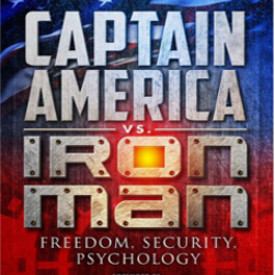
- Publisher: RIVERHEAD BOOKS/PENGUIN PUTNAM
- Publication date: 04/27/2021
- Pages: 368
- ISBN: 9780735214507
- Author: David Epstein
Range: How Generalists Triumph In A Specialized World by David Epstein includes several real world examples and stories of how experience outside of a specialty often helps lead to excellence and breakthroughs within that same specialty. His first example is from the world of sports where he contrasts Tiger Woods who almost exclusively specialized in golf from very early childhood with Roger Federer who played multiple types of sports and did not focus on tennis until relatively late. Both became the very top of their sport.
Epstein argues that golf, a solo game played only against the course conditions is difficult, but not very complex. By focusing on only the skills required for the game and the course and hyper-specializing, Tiger was able to excel and reach the top of the profession. Tennis is more complex, with an opponent who is unpredictable and changing with every stroke of the racket. In this world, some of the additional sports Roger participated in before specializing gave him additional range of: motion, strategies, muscular development, etc. All these helped move him beyond other more singularly specialized players to become the top tennis player in the world.
This thought that wicked (complex) problems are often better solved by generalist rather than specialists applies not only to sports, but to science and business and technology and other areas. Many discoveries and advances in every field come from people either outside the field or who regularly expose themselves to information from outside their fields. Folks who make those advances tend to not be the ones who specialized very early, rather it is often those people who took a circuitous path through multiple experiences, multiple lines of study, sometime multiple careers before finding the area where they finally specialized and excelled. This gave them enough knowledge to make the connections from that topic with other experiences to make a huge difference in the field.
Overspecializing applies not only to people, but to teams and the rules and strategies they follow. Epstein documents how several engineers working on the Space Shuttle Challenger’s last mission had concerns about the O-rings failing at low temperature, but they were more gut level concerns and they did not have specific data to back up their concerns. NASA was a very data oriented and rule based culture. Following only specific data trails, they OK’d the launch of the Challenger at a lower temperature than previous launches. Someone noticing more soot released on previous launches at low temperatures was not specific enough to override the collected numeric data. They followed their rules based only on the hard data available, and the Challenger was lost. People often give Richard Feynman the credit for discovering this O-ring problem, but he was just outsider enough to publicize it. It was known and discussed before the launch, but was dismissed due to an overly specialized rule set in NASA and the inability to consider ‘soft’ data outside those rules.
From sports to music to science and beyond, the book has many examples of the contributions to many different disciplines from outsiders and lateral thinkers. Epstein admits that the pure specialists in any field are required, people with that very deep knowledge of particular subjects. These folks bring the full content of information to the fields, but it is often folks with a breadth of knowledge about other areas who are able to use this knowledge to make the innovative leap to new insights. They still need significant amount of that specialized knowledge, but combining that with outside ideas allows them to lift the base specialty to new levels.
This book resonated with me. As long as I can remember, I’ve enjoyed reading and exploring different ideas from different subjects. I love reading about science and technology and history and… I love reading fiction. I especially like science fiction as it tends to bring viewpoints from multiple areas together in new ways. I may never reached the very top of my profession in the business world, but I did OK for myself, and I think the ideas I got from stories and books outside my field helped me succeed in my career in ways I would have otherwise missed. Reading and exploring outside my ‘chosen profession’ also helped me when I decided to write my novel and helped to make it more ‘real’ by combining different ideas from different ‘specialties’.
If you are looking to succeed in whatever you are doing, if you are looking to make a breakthrough and maybe take things to a new level, perhaps you should be looking at something unrelated, or only peripherally related to whatever you are working on. Range may be a good place to start to see examples of how this has worked for others, and maybe spark some new ideas and connections of your own.
________________________
Want to see how I pulled different disciplines and topics into a ‘new’ story? Try Plastivore by Matt Truxaw











